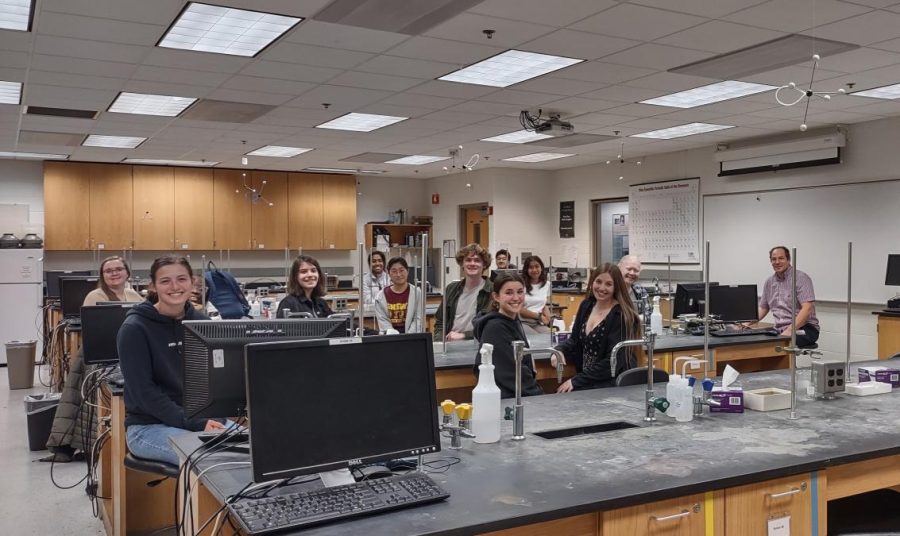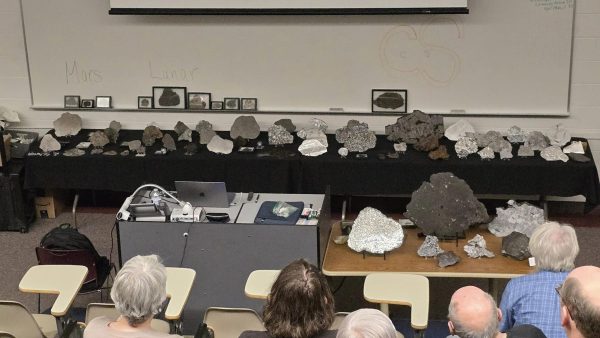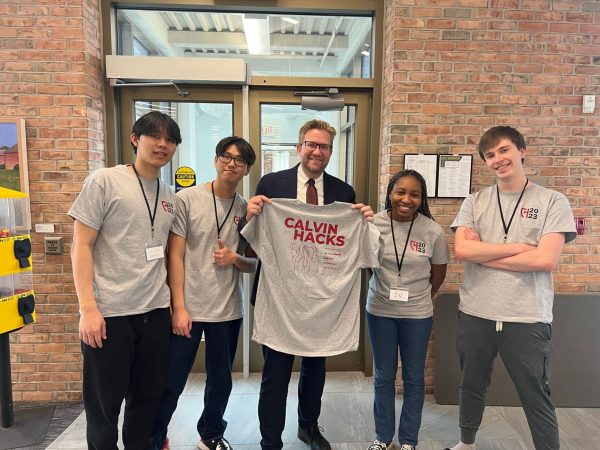Clean Water Institute revs-up for next projects
This CWI research team tests water in ponds all over campus.
Calvin’s Clean Water Institute (CWI) has begun preparations to conduct research on the health of water bodies around campus. This research would help improve the Institute’s comprehension of water-related treatment applicable to projects around the world.
The Institute has ongoing projects in Ecuador and Honduras, but projects in the city of Grand Rapids and country of Guatemala are also on the horizon, as the Institute looks to extend its work into new parts of the world.
We take it for granted here in the United States, [that] we can walk up to any faucet, any drinking fountain … [in some places] you have to have an intentional plan every single day [for] ‘How am I gonna get my clean drinking water?’
— Douglas Vander Griend
Professor Douglas Vander Griend, director of the CWI, has been a leading force in expanding the Institute’s effort.
Getting students involved, such as through the Joseph and Sang Jin Kim scholarship, which is available to students who decide to participate with the institution, has helped grow the Institute’s research capacity.
“I believe that this new wave of projects is a result of intentional community building by the institute. The efforts of our director have led us to student outreach through the water-testing research and a first-year student scholarship, all in the efforts of raising student awareness of our goals,” Isabel Latvaitis, outreach intern for the CWI and a senior studying biology, told Chimes.
Mission
“Our mission is to unleash students and researchers to have an impact on the world and [make] clean water more available, specifically drinkable, clean water,” Vander Griend said.
After identifying communities in water-related crises, the institute brings together students, faculty and researchers to support those communities.
Over the eight years the institute has been running, they have begun projects in places such as Liberia and Jordan, where there has been limited access to safe drinking water.
“We take it for granted here in the United States, [that] we can walk up to any faucet, any drinking fountain … and get gobs of clean water … [in some places] you have to have an intentional plan every single day [for] ‘How am I gonna get my clean drinking water?’” Vander Griend said.
The way that we show love is [to] make someone else’s problem your problem.
— Douglas Vander Griend
According to the United Nations Children’s Fund (UNICEF), about two billion people live without access to safe water in their home.
According to Vander Griend, it is not only a common human responsibility to care for our neighbors but also an important part of the Christian walk. “The way that we show love is [to] make someone else’s problem your problem,” he said.
Helping effectively
The CWI has centered its mission not on offering charity but on trying to make changes that are sustainable through partnership with communities affected by lack of access to clean water.
Vander Griend said that asking questions like “What sort of solutions work? What sort of solutions don’t work … What would you want from people trying to help? What would you not want from people trying to help?” promotes effective changes in those communities.
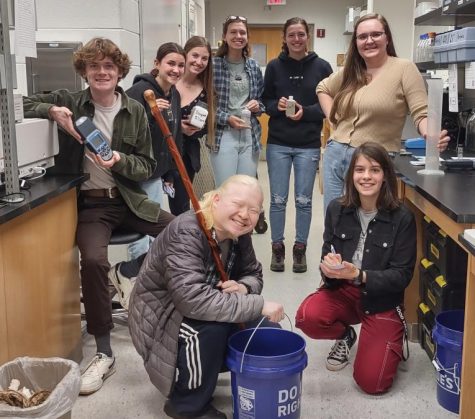
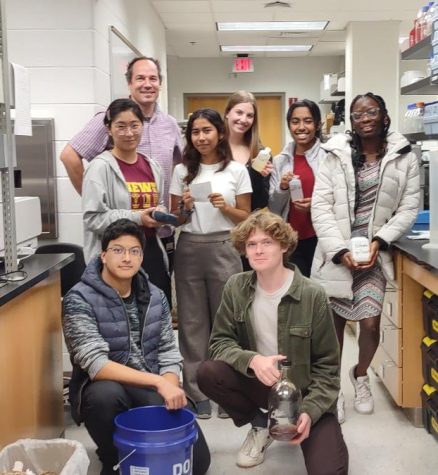
“I think that ‘effective helping’ is the willingness to build long-lasting relationships with the communities you are aiming to help and giving them agency to build a solution that would best suit their needs, instead of entering a situation with what you think is best,” Latvaitis said.
The CWI prides itself on making use of an interdisciplinary approach to solving water-related issues. “We recognize that there’s no one discipline that is the answer to this clean water issue … You can’t solve it with just chemistry … [or] engineering … [or] business,” Vander Griend said. “You probably need all of those in some way and depending on the exact situation political science comes into play as well, because [of] how the government is running things.”
Through the integration of different academic disciplines, the institute is able to treat each problem on a case-by-case basis. “We absolutely try to treat each situation with the uniqueness that it deserves. We don’t want to treat it like a cookie-cutter thing,” Vander Griend said.
Empowering students
The CWI tries to enable students involved to see the world in new ways via exposure to different communities.
It gives students an opportunity to knowledgeably engage with a global issue and make real change.
— Isabel Latvaitis
“You travel, you start getting perspective … that perspective makes you wiser [which] makes you more understanding,” Vander Griend told Chimes.
“It gives students an opportunity to knowledgeably engage with a global issue and make real change,” Latvaitis said.
According to Vander Griend, the CWI is based on the same foundations that Calvin is designed upon.
“Lots of disciplines, lots of areas coming together but also motivated to truly love people in a way that puts their best interest first,” he said.
Taryn Hoeksema, a senior studying public health and social work, partnered with the CWI and the Sawyer Institute in a study of clean water in Honduras. She said that the CWI “challenges the Calvin community to think deeply about the different global influences on water and how solutions may be met … [seeks] justice regarding the access to, quality and sustainability of clean water globally … [and lives] wholeheartedly by working to better understand and achieve our vocations through our interactions with water justice and sustainability.”



